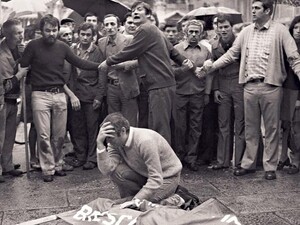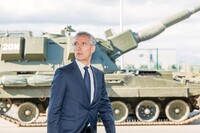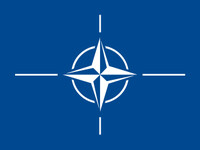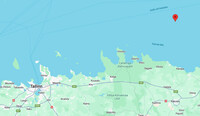Italy, Brescia massacre: "The new investigation leads to the NATO command in Verona"
Today in Italy, we commemorate the massacre of Piazza della Loggia in Brescia in 1974

It is a massacre on which the judiciary is finally shedding light, after a very long time.
There were three levels to that massacre.
First level of the Brescia massacre: the neo-fascists, the bomb.
Second level: the secret services.
Third level: the NATO command in Verona (Italy).
At the Eirene Festival, during the debate on Angelo Baracca's book "NATO and the Mysteries of Italy" (Left, 2023), we tackled the thorny issue of the "third level" of the terrorist strategy in Italy, namely international cover-ups
The massacre of Brescia in 1974, but the same applies, for example, to the massacre of Bologna in 1980, involves the involvement of the secret services, which for a long time we referred to as "deviant services."
But were they deviated by whom? By the neo-fascists?
That massacre cannot be explained simply by the actions of the neo-fascist "foot soldiers," duly mentioned today by President Sergio Mattarella as "right-wing subversion." There was a second level, which involved the cover-ups within the secret apparatus of the State, and then the highest level that provided protection to all: the NATO FTASE command in Verona. It is not conspiracy theorists from the extreme left who say this today, but rather the 280,000-page investigation documents. That extensive documentation leads to the Allied Land Forces Southern Europe (FTASE) command of NATO, located in Verona.
Can we still speak of secret services "deviated" by the neo-fascists? Of officers nostalgic for the Duce? Or was there instead a strategy of destabilization that did not look to the past but to the geopolitics of that time, specifically the imposing presence of the largest communist party in Europe? To the welding together of that reality with the broader democratic and progressive framework that was forming with the labor movement and the student movement?
These questions can be the basis for political assessments and reflections.
However, what we emphasized today at the Eirene Festival, on the day of the Piazza della Loggia massacre in Brescia, is the objective role played by the political-military alliance of NATO. Thanks to the new investigations carried out by the judiciary, the truth is getting closer.
Articoli correlati
 Norway backtracks
Norway backtracksStoltenberg and the suspension of the Norwegian sovereign wealth fund's ethics rules
Restrictions on investments in companies implicated in human rights abuses or weapons production have been suspended. The suspension of ethics rules was approved on November 4, 2025, by the Labour-majority Parliament.6 November 2025 - Redazione PeaceLink Marcia indietro della Norvegia
Marcia indietro della NorvegiaStoltenberg e la sospensione delle regole etiche del Fondo sovrano norvegese
Sono stati sospesi i vincoli contro gli investimenti in aziende coinvolte in violazioni dei diritti umani o nella produzione di armi. La sospensione delle regole etiche è stata approvata il 4 novembre 2025 dal parlamento a maggioranza laburista.6 November 2025 - Redazione PeaceLink Il terrorismo di destra è stato supportato da uomini collegati alla Nato e della CIA
Il terrorismo di destra è stato supportato da uomini collegati alla Nato e della CIAUna regia "atlantica" dietro la strage di Bologna del 1980
La sentenza parla di "cornice piduista" in una "prospettiva politica atlantista". Oltre al ruolo di Licio Gelli nella strage emerge infatti quello di Federico Umberto D’Amato, amico di Cossiga e affiliato alla P2, e già rappresentante del Ministro dell’Interno nel Comitato di Sicurezza della Nato.27 October 2025 - Alessandro Marescotti Un'analisi critica dell'episodio dello scorso 19 settembre
Un'analisi critica dell'episodio dello scorso 19 settembreI Mig-31 russi hanno violato lo spazio aereo dell'Estonia?
Una importante agenzia stampa ha riportato che "i Mig-31 hanno sorvolato la capitale Tallin per 12 minuti prima che jet italiani fossero inviati a intercettarli". Ma i Mig-31 non hanno volato sulla capitale estone. Le cose sono andate diversamente e abbiamo scoperto cose molto interessanti. Eccole.28 September 2025 - Alessandro Marescotti
Sociale.network